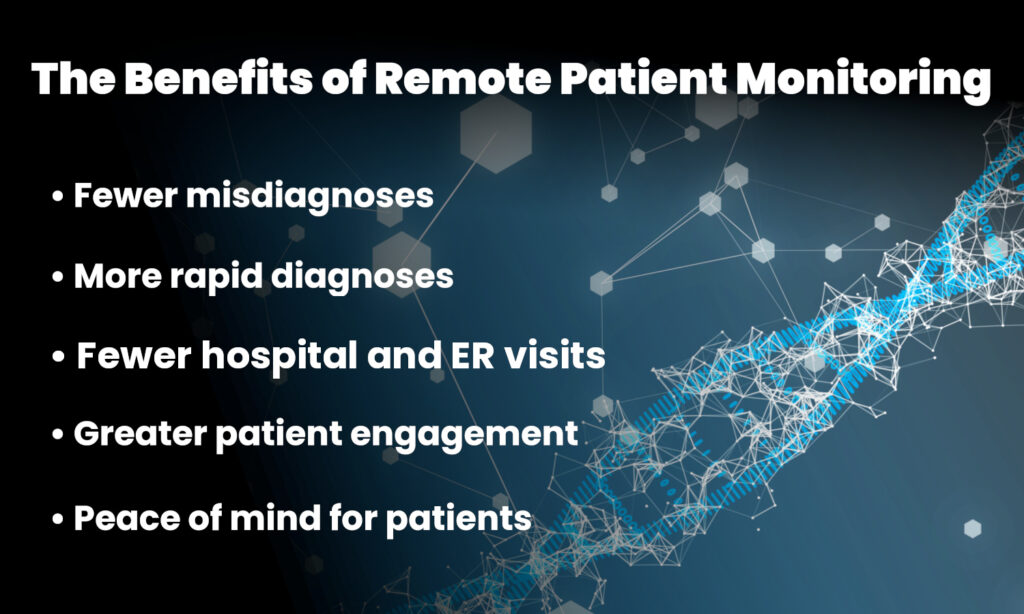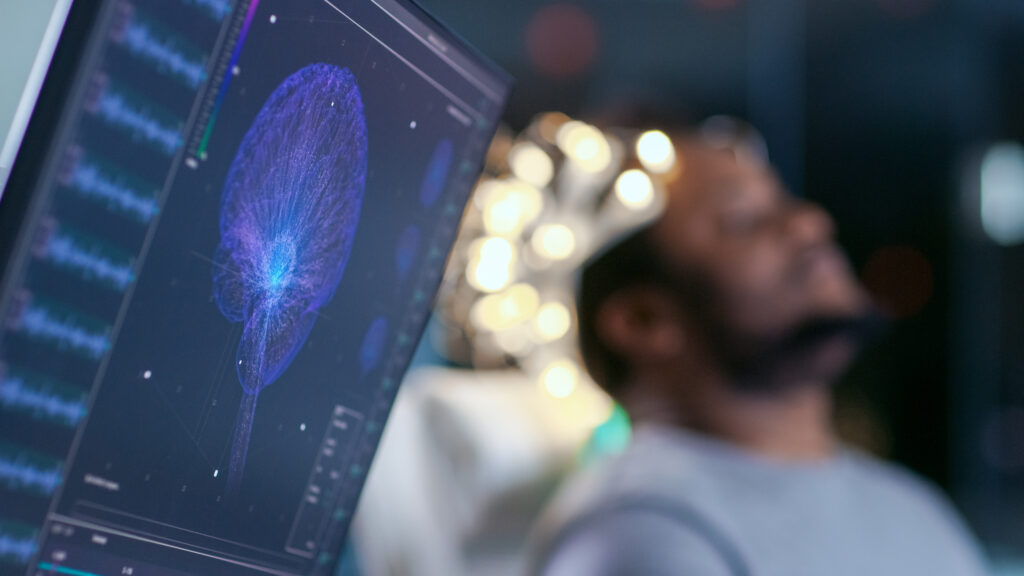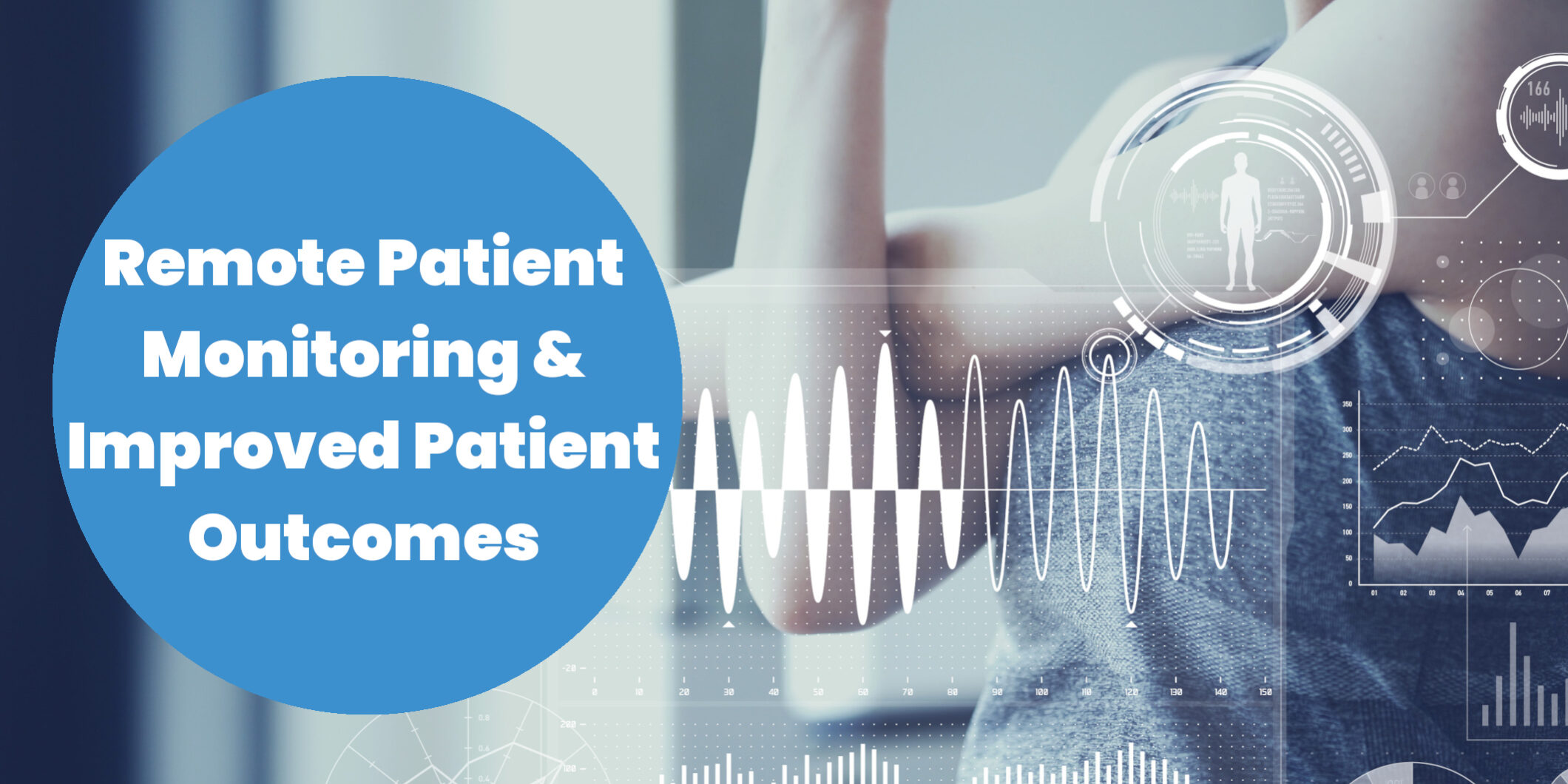We’ve all experienced it: You have a symptom and when you go to show the physician, that said symptom is completely elusive, only to return the moment you depart the medical clinic. But remote patient monitoring — better known as RPM — is changing this equation.
Data plays a critical role in healthcare but the ability to capture that data has been limited up until the past couple decades. Today, physicians and other healthcare professionals can collect data using an array of wearables and even implants, opening the door to improved care and better patient outcomes.
An increasing number of healthcare providers are turning to remote patient monitoring technology to improve patient outcomes in significant ways. In fact, remote patient monitoring often includes machine learning-powered artificial intelligence technology which can be used to identify trends and deploy treatment or other interventions if the need arises. This is just one of the many benefits for patients and physicians alike.
Examples of Remote Patient Monitoring Technology
 Remote patient monitoring technology takes many different forms. One of the most well-known forms of monitoring involves a vest that collects heart data. That data can be collected in a more passive manner or it may be sent to a monitoring center where — if the patient exhibits anomalous heart activity — an agent will call the patient to check in. These heart monitoring devices are critical for diagnosing an array of heart conditions that may otherwise go undetected if the physician were to rely upon in-clinic observations.
Remote patient monitoring technology takes many different forms. One of the most well-known forms of monitoring involves a vest that collects heart data. That data can be collected in a more passive manner or it may be sent to a monitoring center where — if the patient exhibits anomalous heart activity — an agent will call the patient to check in. These heart monitoring devices are critical for diagnosing an array of heart conditions that may otherwise go undetected if the physician were to rely upon in-clinic observations.
Another example can be found in sleep monitoring devices, which are a great alternative to an in-clinic sleep study. Sleep monitoring devices can be used to diagnose sleep apnea and a variety of other sleep disorders. They also provide more accurate results since sleep patterns often differ when a patient is forced to sleep in an unfamiliar environment as occurs in the case of an in-clinic sleep study.
Wearable remote patient monitoring devices can also be used for diabetics and others who experience hyperglycemia. Most are probably familiar with continuous glucose monitoring devices or CGMs, which have taken the place of traditional blood sugar testing for many patients. The data that’s collected can be shared with a physician and analyzed to refine and perfect treatment.
Remote patient monitoring is also commonly used for conditions such as chronic obstructive pulmonary disease (COPD) and congestive heart failure (CHF).
The Benefits of Remote Patient Monitoring (RPM)
There are many benefits of remote patient monitoring technology and this is true for both physicians and the patients. Here is a look at a few benefits of RPM and how this technology is improving patient outcomes.
Fewer Cases of Misdiagnosis – There is a dramatically reduced risk of a misdiagnosis when medical professionals have the information they need to analyze and make a data-driven diagnosis. This is an area where machine learning-driven AI can be especially useful since this technology is adept at spotting patterns and trends that may be suggestive of a particular disease or health condition. A misdiagnosis can be devastating to a patient, with some going years until they’re properly diagnosed and treated.
More Rapid Diagnosis – Remote patient monitoring technology can lead to a more rapid diagnosis. With the right data in-hand, physicians can diagnose and treat a patient’s condition with greater speed, leading to a more prompt positive outcome.
Fewer Hospital and ER Visits – Remote patient monitoring allows for fewer visits to the hospital, your physician’s clinic or the emergency room. Patients don’t need to guess as to whether a dangerous health situation has arisen; they can rest assured knowing that their data stream is being monitored and they will be alerted if medical attention is required.
Improved Patient Engagement – Remote patient monitoring technology tends to bring about greater patient engagement in the healthcare process. Active engagement is linked to greater compliance with treatment regimes too, leading to a much greater chance of seeing a positive outcome.
Peace of Mind – Remote patient monitoring offers peace of mind to patients, as they can rest assured knowing that their data is being captured — and in some cases, monitored — thereby maximizing their chances of seeing an accurate diagnosis and an effective treatment. In cases where the data is being actively monitored, patients can find reassurance in the fact that they will be alerted if dangerous conditions arise.
Developing Remote Patient Monitoring Technology for Healthcare Providers
 An increasing number of physicians are choosing to develop custom remote patient monitoring portals for their practices. RPM data can be integrated with existing enterprise software platforms, with machine learning and artificial intelligence technology providing additional insights on the data that’s collected. This helps physicians to make the most of their patients’ data while remaining fully compliant with HIPAA data collection and data handling requirements.
An increasing number of physicians are choosing to develop custom remote patient monitoring portals for their practices. RPM data can be integrated with existing enterprise software platforms, with machine learning and artificial intelligence technology providing additional insights on the data that’s collected. This helps physicians to make the most of their patients’ data while remaining fully compliant with HIPAA data collection and data handling requirements.
At 7T, we know what it takes to develop a HIPAA-compliant RPM platform, with the functionalities and features that are essential for this highly-regulated business space.
At 7T, we specialize in multimodal machine learning-powered AI applications across several industries including healthcare, along with finance, shipping and logistics, retail and beyond. By working with a top Dallas Digital Transformation development company that’s experienced in the newest emerging technologies like machine learning-powered AI, you’ll maximize your chances of success with quantifiable KPI metrics and ROI.
The Digital Transformation development team here at 7T is guided by the approach of “Digital Transformation Driven by Business Strategy.” As such, the 7T development team works with company leaders who are seeking to solve problems and drive ROI through Digital Transformation and innovative business solutions such as multimodal machine learning-powered AI implementations in the healthcare space.
7T has offices in Dallas, Houston and Austin, but our clientele spans the globe. If you’re ready to learn more about AI development solutions for businesses in the healthcare space, contact 7T today.








